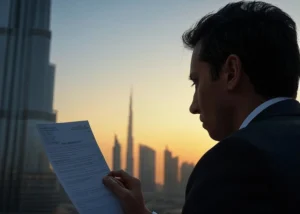In recent years, Dubai has established itself as a global hub for business, trade, and innovation. To maintain its competitive edge, the emirate has continuously enhanced its legal and regulatory frameworks. One of the most significant advancements in this regard is the introduction of new mediation rules aimed at transforming dispute resolution practices. These changes not only streamline the resolution process but also emphasize Dubai’s commitment to fostering a business-friendly environment.
The Shift Toward Mediation
Mediation, as a form of Alternative Dispute Resolution (ADR), has gained prominence worldwide for its efficiency, cost-effectiveness, and ability to preserve relationships between disputing parties. Unlike litigation, mediation involves a neutral third party facilitating negotiations to help the parties reach a mutually acceptable agreement. It is a voluntary, confidential process that empowers the parties to shape the outcome of their dispute.
In Dubai, the adoption of new mediation rules reflects the emirate’s dedication to aligning its legal practices with global standards. These rules are part of a broader strategy to offer modern, efficient alternatives to traditional litigation, which can often be time-consuming, costly, and adversarial.
Key Features of Dubai’s New Mediation Rules
- Enhanced Legal Framework Dubai’s new mediation rules, governed under Federal Law No. 6 of 2021 and other relevant regulations, provide a clear and comprehensive framework for both judicial and non-judicial mediation. These rules establish the roles and responsibilities of mediators, the rights and obligations of the parties, and the procedures for initiating and conducting mediation.
- Judicial and Non-Judicial Mediation
- Judicial Mediation: Disputes already under litigation can be referred to mediation by the courts, provided all parties agree, one party requests it, or a mediation agreement exists. Court-referred mediations are non-appealable, ensuring the finality of the process.
- Non-Judicial Mediation: Parties can opt for mediation before resorting to litigation by submitting a mediation agreement to designated mediation centers. This proactive approach helps prevent disputes from escalating into lengthy legal battles.
- Focus on Confidentiality The rules underscore the importance of confidentiality, a cornerstone of the mediation process. All communications, documents, and agreements arising from mediation are protected, ensuring that sensitive business information remains private.
- Recognition of Settlement Agreements Settlement agreements reached through mediation are enforceable under the new rules. This gives parties the assurance that their agreements will be upheld, providing a robust incentive to participate in mediation.
- Qualified Mediators Dubai’s mediation framework emphasizes the importance of qualified mediators. Mediators must possess expertise in the relevant legal and commercial fields to ensure they can effectively navigate the complexities of disputes.
Advantages of the New Rules
The new mediation rules bring several benefits to businesses and individuals in Dubai:
- Time Efficiency: Mediation significantly reduces the time required to resolve disputes compared to traditional litigation.
- Cost Savings: By avoiding prolonged court proceedings, parties can save on legal fees and other associated costs.
- Preservation of Relationships: Mediation fosters collaborative problem-solving, helping parties maintain their professional and personal relationships.
- Flexibility: The process is adaptable to the specific needs and preferences of the parties involved.
- Certainty and Enforceability: Enforceable settlement agreements provide a clear path to resolution.
Impact on Dubai’s Business Environment
The introduction of these mediation rules reinforces Dubai’s position as a leading destination for international business and investment. By providing an efficient, business-friendly dispute resolution mechanism, Dubai ensures that companies can focus on growth and innovation rather than being bogged down by legal disputes.
These reforms also enhance Dubai’s attractiveness to global investors who value stability and predictability in legal processes. The emphasis on confidentiality and enforceability further instills confidence in the emirate’s legal system.
Conclusion
Dubai’s new mediation rules mark a transformative step in the evolution of dispute resolution practices. By embracing mediation as a cornerstone of its legal framework, Dubai not only aligns itself with global best practices but also demonstrates its commitment to fostering a harmonious, efficient, and business-friendly environment. As these rules gain traction, they are set to become a vital tool for resolving disputes and promoting collaboration in one of the world’s most dynamic regions.






